Santillana del Mar, Cantabria, Spain 8/13
Santillana del Mar is a small town in the state of Cantabria in northern Spain. The first people living in the area were prehistoric cave dwellers some 36,000 and 13,000 years ago. Romans had settled nearby but the exact date of the founding of the abbey of Santa and Asturias de Santillana is not known. It has its origin in the early Middle Ages (8th or 9th century AD). Already in 1889, Santillana del Mar was declared a historic-artistic site. Much of its original flavor is still preserved.
There is an old saying that Santillana del Mar is The Town of Three Lies, since it is neither a Saint (Santo), nor flat (llana) and has no sea (Mar) as implied by the town’s name. However, the name actually derives from Santa Juliana (or Saint Illana) whose remains are kept in the Colegiata, a Romanesque church and former Benedictine monastery.
Arriving early, we found a good parking place in the main square, the Plaza del Rey. The charge was 2 Euros. Such a deal! It was drizzling so we grabbed a table at the nearby café that had Internet (Wi-Fi is pronounced here as “wee fee”) and caught up on emails and blogs. Keeping an eye on The Turtle V in the Plaza, if we could have charged a Euro for every photo taken of the truck, we could have made several hundred dollars.
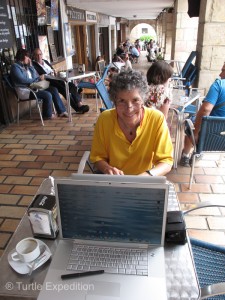
The nearby café that had Internet (Wi-Fi is pronounced here as “wee fee”) so we could catch up on emails and blogs.
Today, Santillana del Mar is an extremely popular town and its cobblestone streets most definitely set you back to earlier times. Local specialties like chocolate, Quesada Pasiega (a dessert), hard cider, several types of smoked sausages, honey and many other things are sold in every tourist shop. Many restaurants entice visitors with special “Menu del Dia” or “Platos Tipicos”.
We did buy a bottle of hard cider but the cork was so entrenched, we had to go back to the super market where the female manager opened it with a special local trick. How was it? Hmm, it had kind of a musty cellar taste. The Quesada Pasiega reminded us of bread pudding.
By late evening, the Plaza del Rey had quieted down so we spent the night together with a couple of other motorhomes. No one bothered us. Our primary reason for coming here was to visit the nearby world famous prehistoric Altamira caves to see the amazing cave paintings.
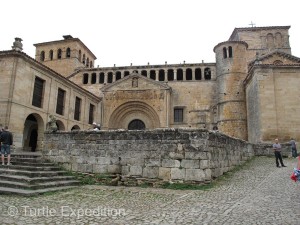
The abbey of Santa and Asturias de Santillana has its origin in the early Middle Ages (8th or 9th century AD).
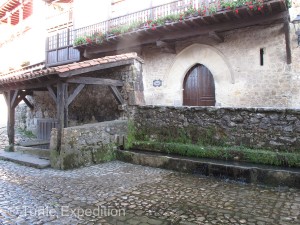
The town “Laundromat” (left) still had its well-used scrubbing stones in place. Adjacent is the drinking trough for animals.



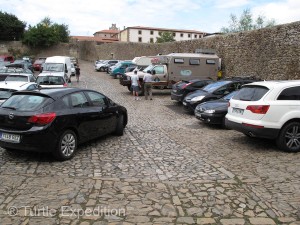
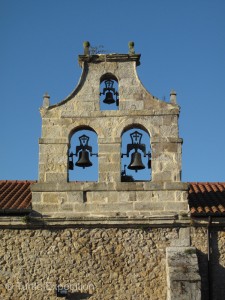
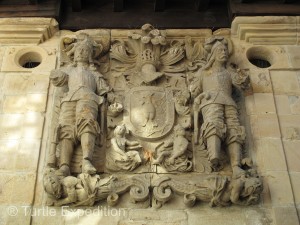
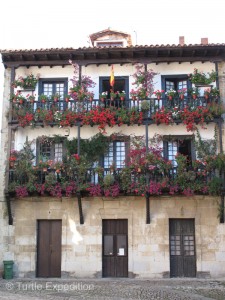
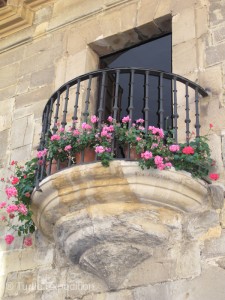
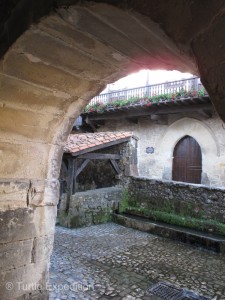
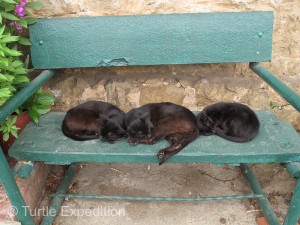





Leave a Comment